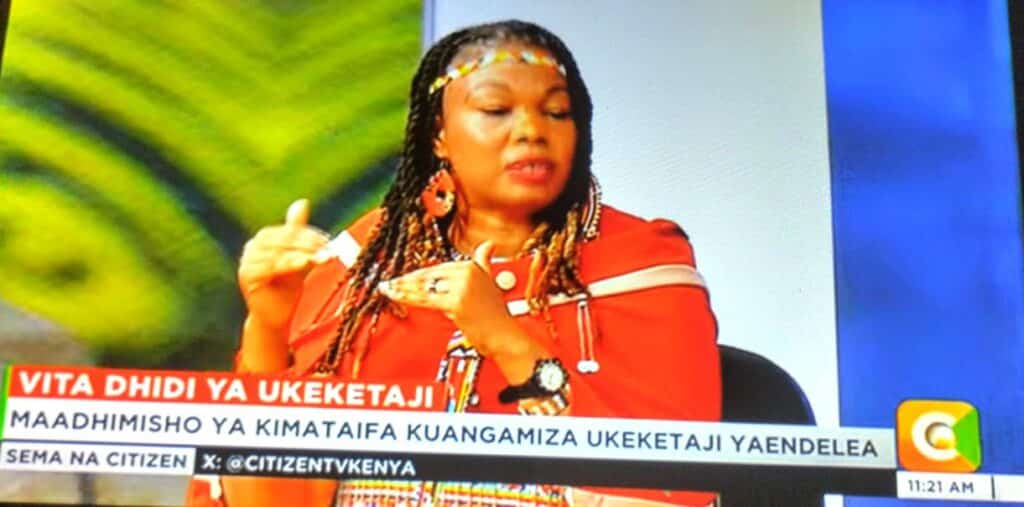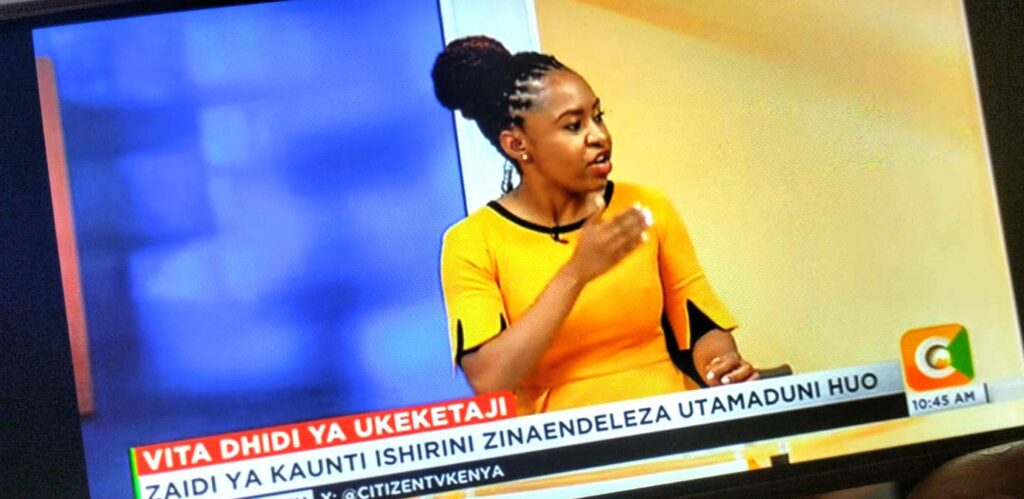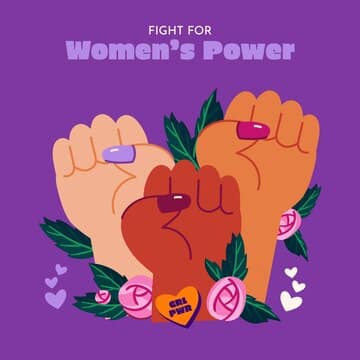February 6th marked an important milestone in Kenya and across the globe as communities rallied together to observe International Day of Zero Tolerance for Female Genital Mutilation (FGM). On this significant day, Citizen TV, under the adept guidance of host Mashirima Kapombe, hosted a compelling discussion featuring voices from various sectors, each echoing the urgent need to eradicate this harmful practice from the fabric of Kenyan society.
The interview panel comprised individuals with diverse backgrounds and expertise, each bringing a unique perspective to the table. Alice Tipango, a survivor of FGM and CEO of NARET INTOIYE an organization in Kajiado County, shared her courageous journey, shedding light on the profound challenges faced by women who have undergone the ordeal of genital mutilation. Her testimony served as a poignant reminder of the physical and emotional scars inflicted by this archaic tradition, emphasizing the imperative of supporting survivors on their path to healing and empowerment.

Dr. Reuben Kamundi, a distinguished neurosurgeon, offered invaluable insights into the medical ramifications of FGM. With unwavering conviction, Dr. Kamundi underscored the risky effects of FGM on women’s health, highlighting the increased risk of infections, childbirth complications, and long-term psychological trauma. His expertise underscored the urgency of prioritizing healthcare interventions and preventive measures to safeguard the well-being of women and girls across Kenya.
Peter Kaunda, a youth governor, and Michael Kishoyian, representing a youth organization under UNFPA, lent their voices to the conversation, emphasizing the crucial role of young people in driving social change. Their impassioned plea resonated with the audience, urging fellow youths to actively engage in advocacy efforts aimed at ending FGM and promoting gender equality. Their involvement underscored the power of collective action in effecting positive transformation within communities.

Regina Mwasambo, a representative from CHILDFUND organization, and Dorcas Parity, CEO of HOPE BEYOND, highlighted the importance of addressing the root causes of FGM and implementing holistic interventions. From community sensitization programs to economic empowerment initiatives for women and girls, their organizations are at the forefront of the fight against FGM, striving to create a future where every individual can thrive free from the shackles of harmful cultural practices.
Central to the discussion was the recognition that FGM is not solely a women’s issue but a societal problem that requires collective action. Men were urged to play an active role in challenging harmful norms and advocating for gender equality. By fostering open dialogue and promoting inclusive participation, communities can foster a culture of respect, dignity, and human rights for all.

Moreover, attention was drawn to the geographical disparities in FGM prevalence across various counties in Kenya. With data indicating higher rates of FGM in certain regions, targeted interventions tailored to local contexts are essential in driving sustainable change. By working hand in hand with community leaders, healthcare professionals, and grassroots organizations, stakeholders can implement tailored strategies to address the unique challenges and barriers to ending FGM in each locality.
As the dialogue concluded, a resounding call to action echoed through the air: FGM must end now. From survivors bravely sharing their stories to experts offering evidence-based solutions, the interview on Citizen TV served as a catalyst for change, inspiring individuals and institutions to unite in the fight against FGM and chart a course towards a future where every woman and girl can realize their full potential, free from the shadows of fear and oppression.
“FGM is not only a violation of human rights but also a major obstacle to achieving gender equality and sustainable development.” – Amina Mohammed, Deputy Secretary-General of the United Nations




